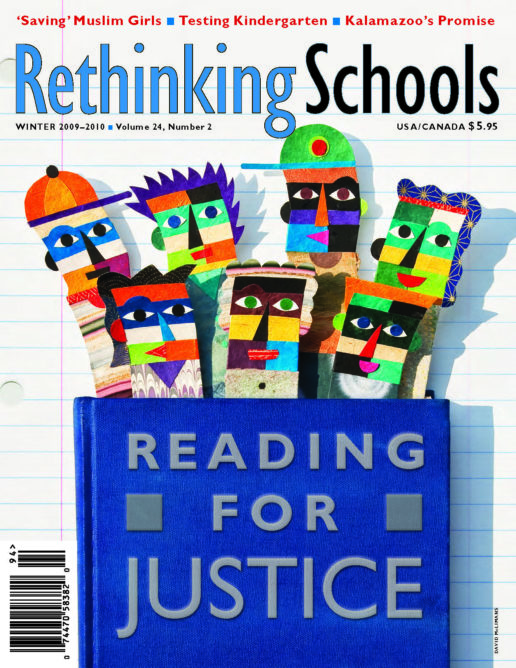Preview of Article:
Adding Salt to ‘Class’ Literature: Barbara O’Connor’s Books for Young Readers
Chapter books portray working-class lives with sensitivity, humor, and respect.
Illustrator: Heidi Younger
The day Sybil showed up at Paradise Trailer Park was about the hottest day anyone in Six Mile, South Carolina, could remember,” begins chapter 18 of Beethoven in Paradise, by Barbara O’Connor. Paradise Trailer Park is where Martin lives with his mother and father, visits his lonely adult friend up the street to listen to classical music and play the violin, and looks forward to his grandmother—who he is required to call Hazeline—coming to pick him up every Sunday for a meal at the Howard Johnson’s. Ashes fly and smoke swirls when Hazeline gets excited about something, like her son pushing Martin into playing baseball and away from playing music. But Martin finds inspiration in spunky Sybil, who teaches him a thing or two about living your dreams. He stalks a violin for sale in a pawnshop, then loses it in dramatic fashion. The title of the book is a clue to Martin’s trajectory.
Salt of the earth people. That’s what I’ve heard folks call the kind of people reflected in O’Connor’s characters: salt of the earth. The phrase originated in the Bible, but it has become a secular catch phrase for working people who do not have control over their means of production and are providing taste and moral preservation in their own ways—people like Martin’s family and friends. In a society where the cleanliness of one’s workplace and one’s income level shape a skewed perception of intelligence, abilities, and ambitions, working-class folks are rarely “gotten right” in literature. They are more often exoticized as admired rebels or pathologized as bumbling idiots. Dorothy Allison, acclaimed novelist and essayist, reflecting on her childhood in a poor, white family in the rural South, wrote, “I had been a child who believed in books, but I had never really found me or mine in print. My family was always made over into caricatures or flattened into saintlike stock creatures. . . . Outside my mother’s stubbornness and my own outraged arrogance, I had never found any reason to believe in myself” (1988).
This continues to be a problem in books for younger readers; working-class and poor lives are often caricatured, pitied, or simply nonexistent. O’Connor is part of a solution, providing enough portraits of diverse characters living rich, complex, nuanced working-class and economically strained lives that readers have many opportunities to recognize parts of themselves or people they know.

